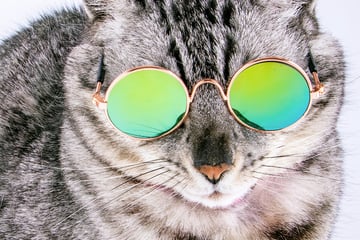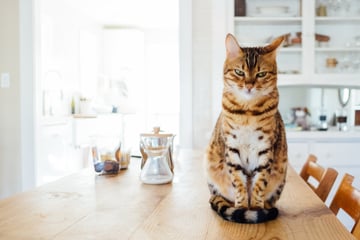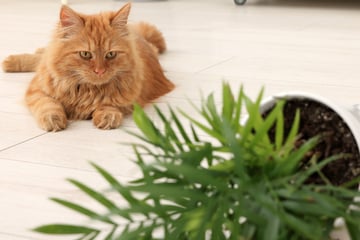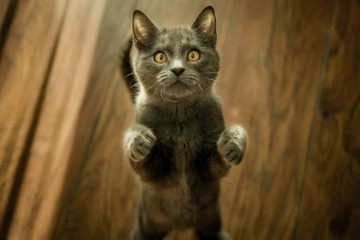How long can cats go without food?
When your cat asks you for food, it likely does so by harassing you with meow after meow. Is your cat actually hungry, or is it putting it all on just for a snack? How long can cats go without food?
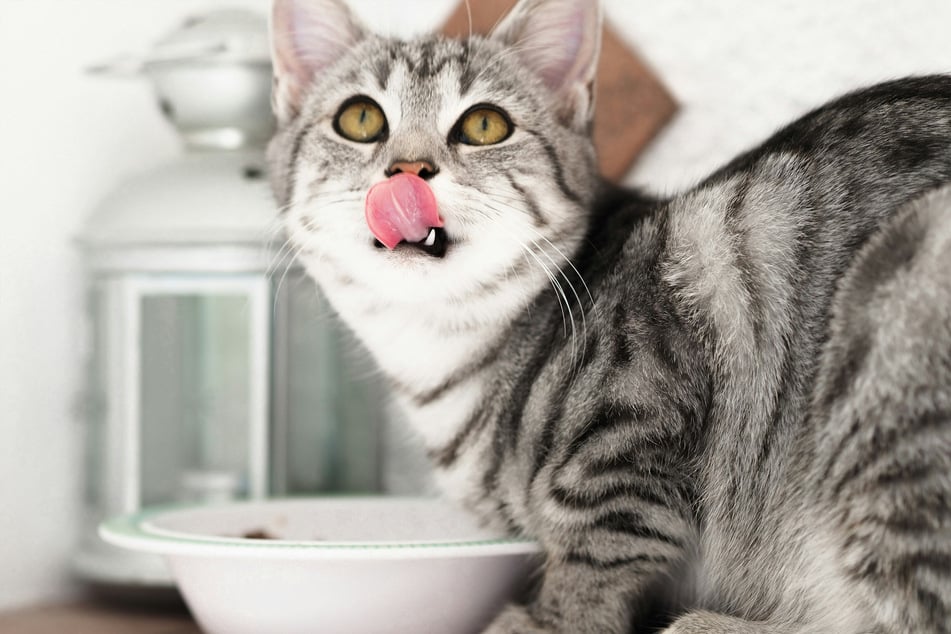
Cats can be incredibly impatient and annoying little creatures from time to time, constantly pining after their next meal and harassing us for bowls of tasty fish biscuits.
Yet, it can get a bit extreme sometimes and will often form a query at the back of the mind – how long can cats actually go without food? Are they really as hungry as they seem?
How long can cats go without eating?
Technically, cats can survive for about one to two weeks without food as long as they have water. This would be extremely painful for them and would eventually leave them starving to death in unbelievable agony. It would be cruel, and it would be animal abuse, so it must never be done.
As a result, you should never leave your kitty alone in the house for more than your standard work day. It might seem logical to provide plenty of water and treats and head off for a three or four-day trip, but realistically, your cat will guzzle everything down immediately and then get progressively hungrier and hungrier.
Do not push things and, instead, simply give your cat what it needs when it needs it. If you are going away, either put your kitty in the cat hotel, get a cat sitter, or have a friend or family member come to your house at least once a day. Once there, they can check up on and feed your feline friend.
Never leave your cat without food for an extended period of time. It is cruel, unlawful, and just simply despicable.
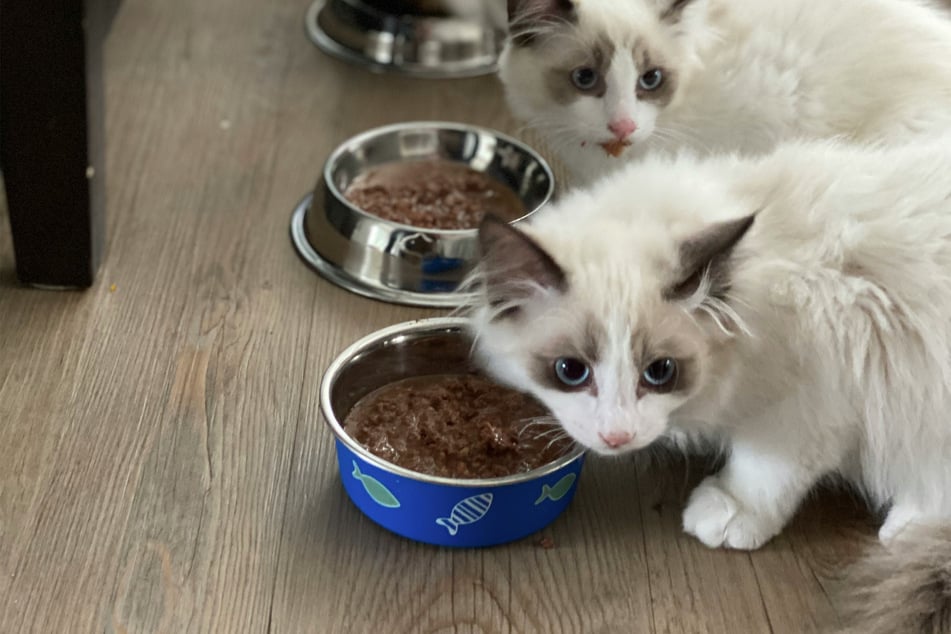
How long can cats go without water?
Without water, your cat is unlikely to survive more than two to four days tops. As with most living things, water is the basis for life and almost as important as oxygen. If you deprive your cat of water, it will quickly dehydrate and suffer an extremely unpleasant death.
Whenever you leave the house, no matter how long, make sure there is a source of water available to your cat. This will make sure that your kitty drinks when it needs to and stays perfectly safe and sound.
How often should cats eat?
Cats should be fed three times a day when they are younger and only two times when they are adults. This kicks in somewhere between the six and 12-month mark. What is most important, however, is that a younger cat is provided with smaller portions in each of its three meals. This guarantees your kitty has a strong flow of nutrients to help it grow, but it also won't overeat.
You should not overfeed your cats and should certainly not give them food that is not meant for their consumption. Mistakes are often made when cats are given human food in large quantities and, as a result, see major weight gain and a variety of pretty vicious health issues. This is something to be avoided.
Make sure to be very firm with your cats about their eating times, making it very clear and consistent. Don't let them snack throughout the day on biscuits, and decide with your doctor on the nature of the diet that would be best for your feline friend.
Important: Your veterinarian is the primary source of authority on what your cat should and shouldn't eat. Follow their advice as best as you can and don't think that you know better – you don't.
When should cats eat and how much?
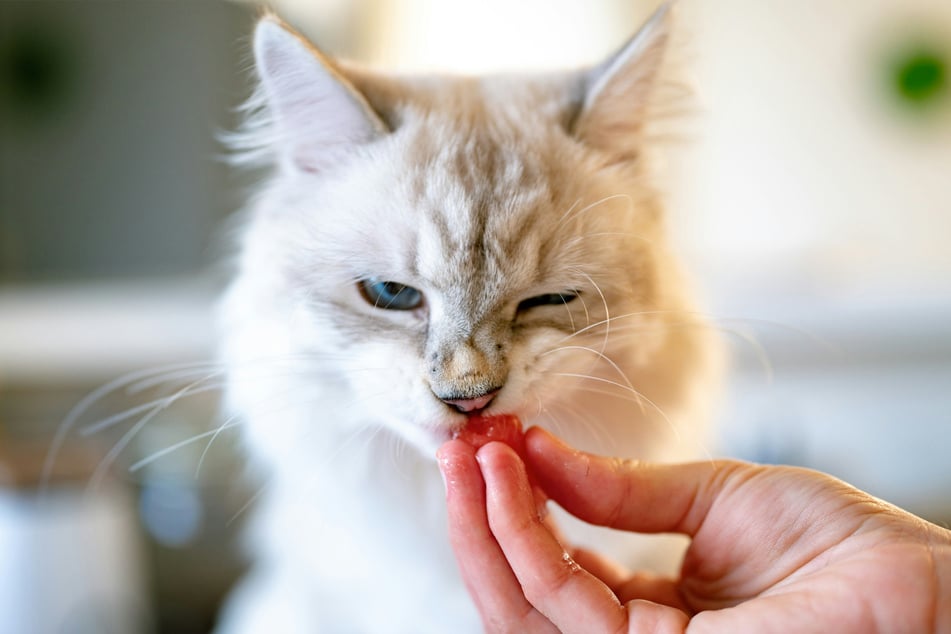
It will likely be best to feed your cat first thing in the morning and then again around your dinner time, but it's different for every cat. Some will need three smaller meals; others will need to snack. Make sure that you consult your veterinarian in detail and develop a comprehensive diet and meal plan for your cat.
Never feed your cat more than is recommended by your vet or the portioning written on the packet or tin. Don't complement standard cat food with human food, either, as human food can contain all sorts of nasty stuff that can make your kitty sick and is also just generally not good for it.
Your cat is constantly looking for attention and constantly looking forward to its next feed – it's only natural. Just be careful about the portion sizes and quantities, and don't fall for the lies!
Cover photo: Unsplash/Laura Chouette
